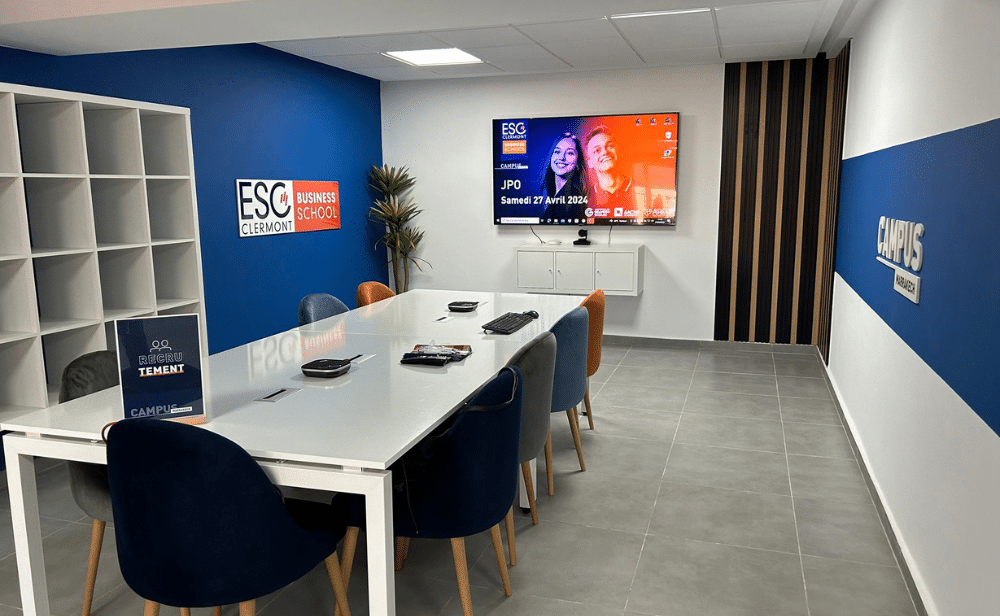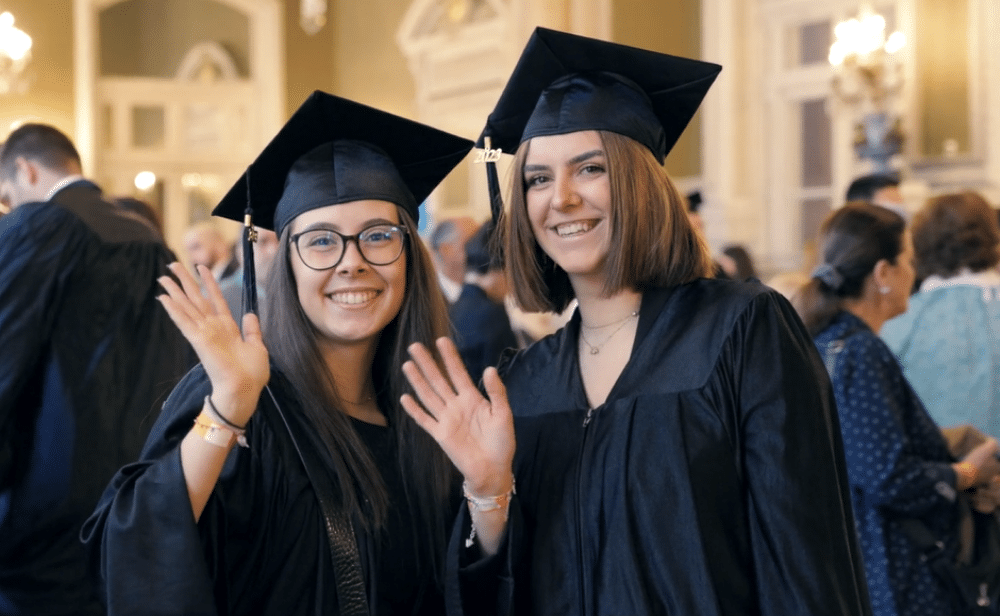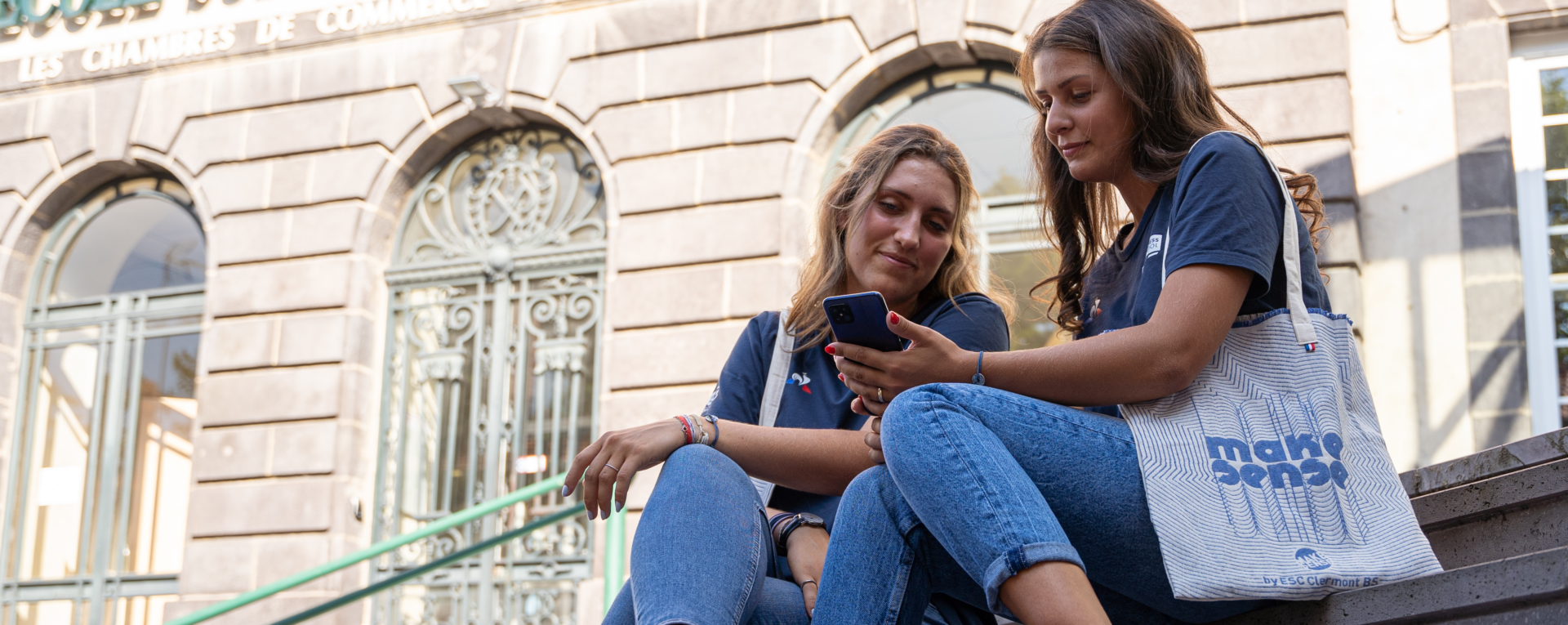

- ESC Clermont Business School
- Study with us
- Programmes
- Bachelor in International Management
- Bachelor in Digitale Communication & E-Commerce
- Master in Management
- Master Grande Ecole online
- MSc – Master of Science Business Intelligence & Analytics
- MSc – Master of Science Corporate Finance and Fintech
- MSc – Master of Science International Commerce & Digital Marketing
- MSc – Master of Science Project Management
- MSc – Master of Science Purchasing & Supply Chain Management
- MSc – Master of Science Strategy & Design for the Anthropocene
- MSc Innovative Project Management (Work-Study Format)
- Doctorate of Business Administration (DBA)
- Executive Education (French only)
- International Students
- Tools & pedagogical support
- Prepare your stay
- Programmes
- Sectors of expertise
- Sectoral sectors
- Proposed majors
- Audit Expertise Consulting
- Business Intelligence
- Designing the Green Redirection
- Digital Design Manager
- E-Business Development
- Financial Engineering & Innovation in Finance
- Financial Engineering and Sustainable Finance
- HR Development & Mobility Support
- HRM and Ecological Transition Management – Programme Grande Ecole Major
- Management Control
- Management of Responsible Organizations
- Marketing & Data Marketing
- Marketing Digital & Communication
- Purchasing & Supply Chain Management
- Sport Business
- Startup Culture & Entrepreneurship
- Faculty & Innovation
- Company & Career
- News & Events
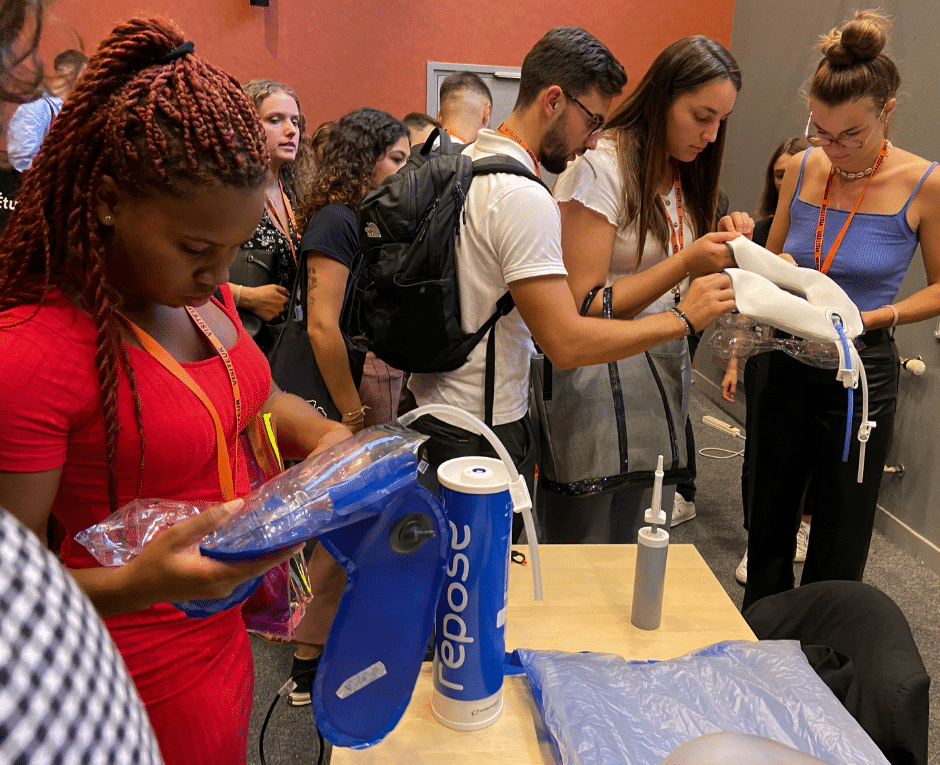
Back to the DONATELLO project, an innovative educational initiative
In early October, students in the final year of their Master Grande École program, majoring in Marketing & Data Marketing, were briefed by the Michelin Inflatable Solutions team on their flagship case: the DONATELLO project. Our long-standing partner, the Michelin group, has stepped in yet again, to offer students guidance and help them to apply their theoretical knowledge through a hands-on learning project.
An ambitious flagship case, a truly “inflated” educational initiative
Under the guidance of industrial experts and led by Cédrine Zumbo-Lebrument, the faculty coordinator for this course, our students are tasked with devising innovative “inflatable” solutions aimed at sustaining and enhancing the autonomy of the elderly. This represents a significant challenge for today’s society. From field research and issue analysis to handling confidential data and prototyping the idea, our students have just a few weeks to craft a new product concept and construct compelling arguments. These efforts aim to capture the attention of multiple Michelin board members during their final presentation on Friday, December 15..
To gain a deeper insight into the convictions and motivations of Cédrine Zumbo-Lebrument, the coordinator of the Marketing & Data Marketing major, we posed five questions to her regarding the DONATELLO project.

COULD YOU BRIEFLY INTRODUCE WHAT THE DONATELLO PROJECT ENTAILS?
The DONATELLO project is an innovative part of the Master 2 program in Marketing and Data Marketing. It’s not your typical class—it’s a unique six-week journey that immerses students in the practical side of product innovation.
In this project, students delve into creating a new product by understanding the challenges faced by the target audience. From there, they use their theoretical knowledge and advanced tools from class to bring their ideas to life with a 3D prototype. It’s an educational adventure that bridges classroom learning with real-world problem-solving.
HOW DID THE IDEA OF COLLABORATING WITH MICHELIN TEAMS COME ABOUT?
The collaboration with Michelin teams originated from an informal discussion with Nzenzé Mangin, Manager at Michelin Inflatable Solutions, during her post-MBA tenure at the school. Having recently completed her MBA – Executive Master in Management, Mangin, who had previously engaged in a similar case with another company, expressed a keen interest in involving students in one of her professional challenges. The shared aspiration was to combine both academic and professional realms. Together, we co-constructed this case, collaboratively shaping every aspect from defining the problem to the step-by-step unfolding of the case.
HOW WAS THE PEDAGOGICAL TEAM THAT GUIDES STUDENTS THROUGHOUT THIS PROJECT FORMED?
This flagship case effortlessly integrates through all modules and courses within the educational framework of the major. Each contributor plays a crucial role, utilizing their theoretical expertise to illuminate various facets of the case.
The pedagogical team overseeing students throughout the DONATELLO project was meticulously assembled to provide high-quality support. This team comprises :
- Academic Researchers in Marketing and Data Marketing: These professionals bring invaluable theoretical and methodological insights to the fields of marketing and data analysis.
- Industry Professionals: External speakers, particularly from Michelin, share practical insights into current industry practices and market expectations.
- Design Experts: Contributors from the Cité du Design in Saint-Étienne, along with two designers skilled in techniques like 3D modeling and low-tech prototyping, contribute their expertise.
- Experts on the “Senior” Target: The Gérontopole AURA, specializing in geriatric knowledge, and the Cité des Aînés, an experimental facility for the elderly, assist students in navigating the complexity of issues related to seniors.
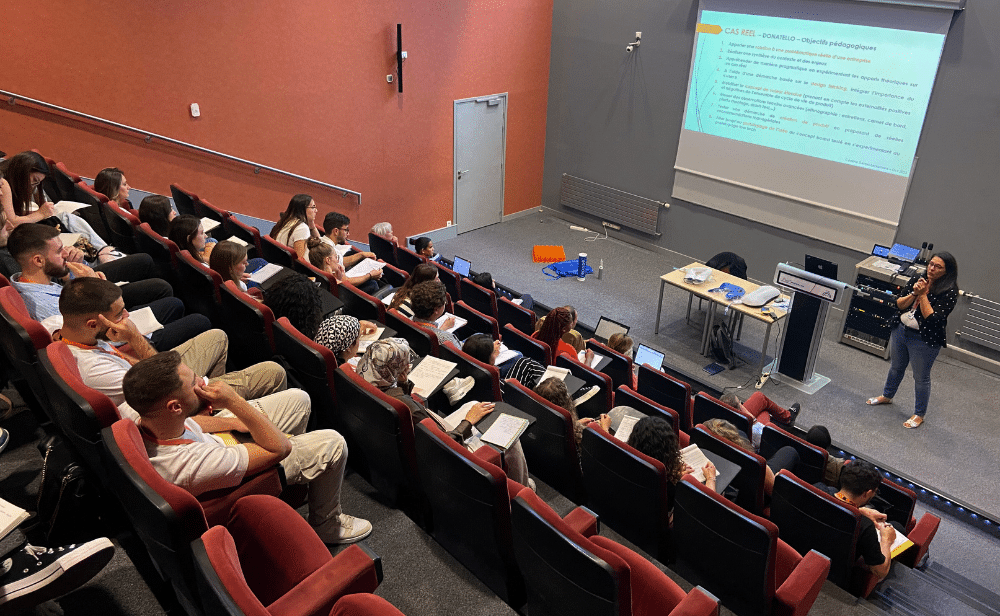
IS IT EASY TO ENGAGE STUDENTS IN A PROBLEM THAT MAY SEEM REMOTE FROM THEIR CURRENT CONCERNS?
The decision to involve students in tackling a challenge with a robust CSR (Corporate Social Responsibility) and human dimension was deliberate. Mobilizing students to address an issue that might initially appear distant from their immediate concerns demands a carefully planned and compelling pedagogical approach. Remarkably, there was nearly unanimous and strong engagement from students right from the outset of the case. This high level of involvement stemmed from the problem’s intergenerational nature, making it personally relevant to them.
With the team, we ensured, among other things:
- Contextual Relevance and Employability: We illustrated to students how the problem aligns with real-world contexts and the extent to which this case can significantly contribute to their employability and professional journey. This immediately sparked their interest and motivation.
- Real-Life Application: By grounding the case in a tangible and practical scenario, specifically using real educational cases from industrial partners like Michelin, we aimed to make the problem more tangible. This approach helps students better comprehend the challenges and envision themselves in realistic situations.
- Interdisciplinary Integration: We incorporated diverse disciplines (marketing, design, data visualization, eye-tracking, panels, eco-circularity, etc.) into the pedagogical approach. This enriched the learning experience and provided students with a comprehensive understanding of the multidimensional aspects inherent in management and business sciences.
- Active Participation and Engagement: Actively encouraging students to participate in presentations, both individually and collectively, and involving them in decisions related to the case fostered a sense of involvement and value. They sensed the commitment of the pedagogical team, aligning with their own engagement in the project.
IN YOUR OPINION, WHAT IMPACTS WILL THIS SUBJECT AND ITS ACCOMPANYING PEDAGOGY HAVE ON OUR STUDENTS’ JOURNEY?
The impact of the DONATELLO case and its corresponding pedagogy on students’ learning is undoubtedly far-reaching, both in the short and long term. Here are some of the main key outcomes:
- Enhanced Analytical Skills: Students honed their data analysis skills, crucial in marketing and data marketing fields where the interpretation and utilization of complex data are increasingly in demand.
- Practical Application of Knowledge: The case empowered students to apply theories and concepts learned in the classroom to real-world scenarios. This hands-on experience deepened their understanding and bolstered their ability to apply theory in professional contexts.
- Improved Decision-Making: Engaging with real cases better equipped students to make informed and strategic decisions in complex and high-pressure situations.
- Interpersonal Skills and Soft Skills Development: Collaboration with Michelin teams and project teamwork fostered interpersonal skills such as communication, leadership, and conflict resolution.
- Adaptability and Flexibility: Tackling diverse issues and innovating amid unforeseen challenges strengthened students’ adaptability and flexibility—essential traits in a constantly evolving professional environment.
- Preparation for Professional Career: The project provided invaluable experience, facilitating a seamless transition from higher education to the professional world and offering tangible achievements for students to highlight in their job search.
- Autonomy Reinforcement: Managing a project from start to finish encouraged students to become more autonomous and develop effective time and resource management skills.
- Ethical Awareness: Working with real data heightened students’ awareness of issues such as confidentiality, data security, and ethics—critical considerations in the realm of digital marketing.
- Professional Networking: Collaborating with professionals from Michelin and other industry players enabled students to expand their network, a valuable asset for their future careers.
- Encouragement of Innovation and Creativity: The project stimulated students to be innovative and creative, qualities highly prized not only in marketing but across various professional domains.
In essence, the DONATELLO educational case and its associated pedagogy were meticulously crafted to equip students to be competent, innovative, and well-informed professionals capable of navigating successfully in the dynamically evolving fields of modern marketing and data marketing.

Suivez l’actualité de l’ESC Clermont Business School en vous abonnant à notre newsletter !
Merci ! Vous êtes maintenant abonné(e) à notre newsletter.
Vous recevrez dorénavant notre newsletter mensuelle.
@bientôt
We faced problems while connecting to the server or receiving data from the server. Please wait for a few seconds and try again.
If the problem persists, then check your internet connectivity. If all other sites open fine, then please contact the administrator of this website with the following information.
TextStatus: undefined
HTTP Error: undefined
Some error has occured.

